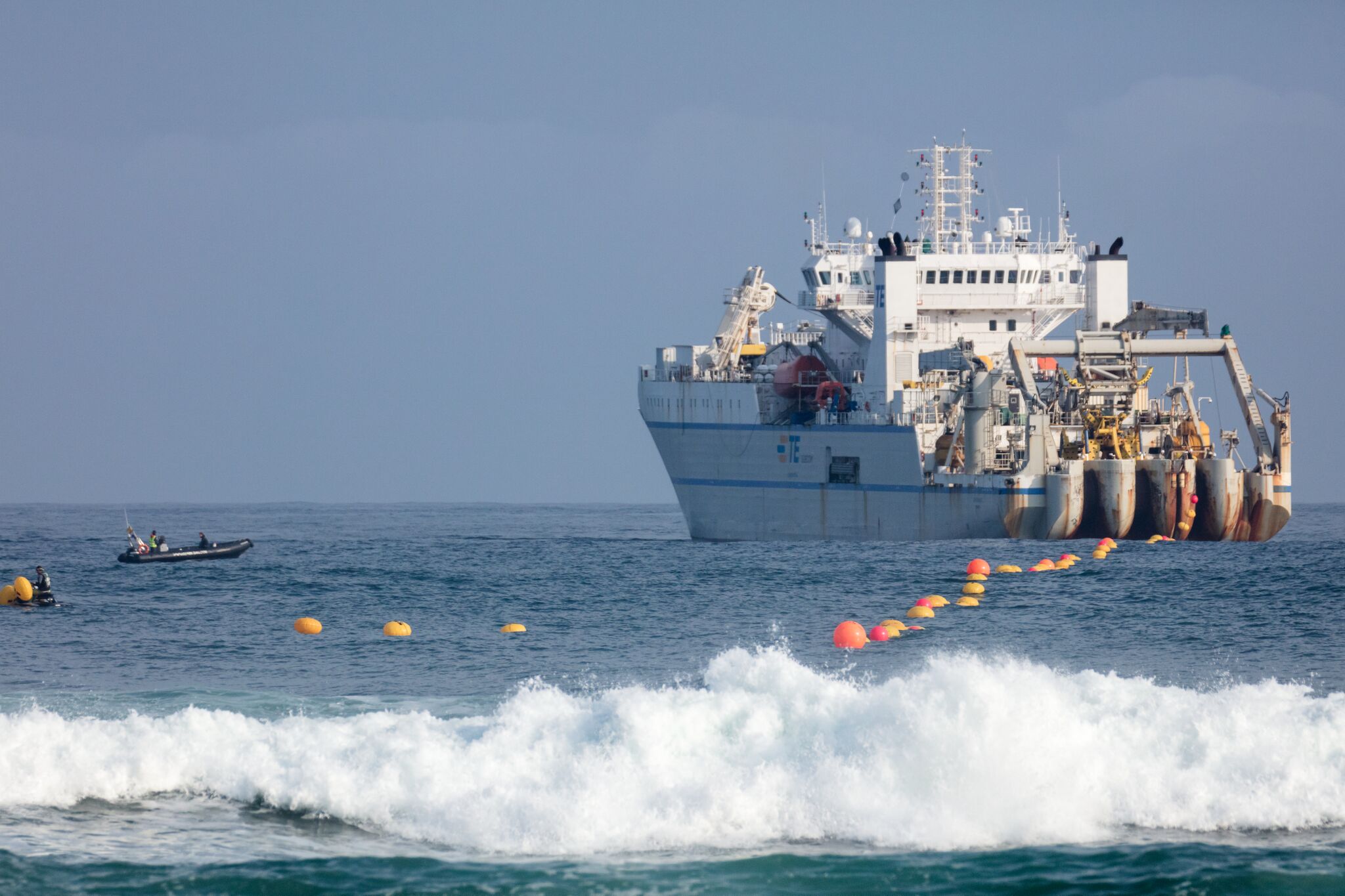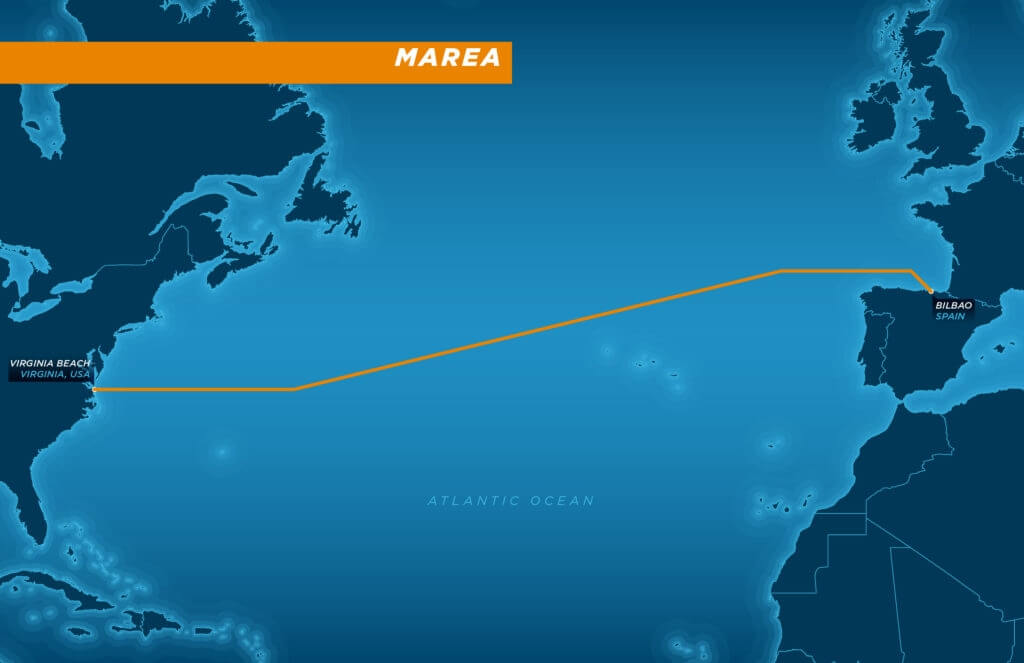
Facebook and Microsoft said in mid-2016 that they were joining forces to build a massive undersea data cable that’d stretch clean across the Atlantic. A little over a year later, the project, which also involves global telecommunication infrastructure company Telxius, has concluded.
Suresh Kumar, corporate vice president of Microsoft’s cloud infrastructure & operations division, announced the completion of the Marea subsea cable in a recent blog post. Spanish for “tide,” Marea links Virginia Beach, Virginia, with Bilbao, Spain, and is said to be the most technologically advanced cable to cross the Atlantic.

The cable resides more than 17,000 feet below the surface of the ocean and measures more than 4,000 miles in length. It weighs nearly 10.25 million pounds and is situated along a route south of existing transatlantic cables, a move that Kumar said helps ensure more resilient and reliable connections for customers on both sides.
Marea is capable of transmitting up to 160 terabits of data per second. To put it into more practical terms, that’s more than 16 million times faster than the average home Internet connection and enough to stream 71 million high-definition videos simultaneously.
Best yet, Marea features a new “open” design that allows it to evolve with technology. That’s important when you consider global Internet traffic is expected to increase eightfold by 2025.
https://www.techspot.com/news/71123-facebook-microsoft-complete-work-160-terabits-second-subsea.html